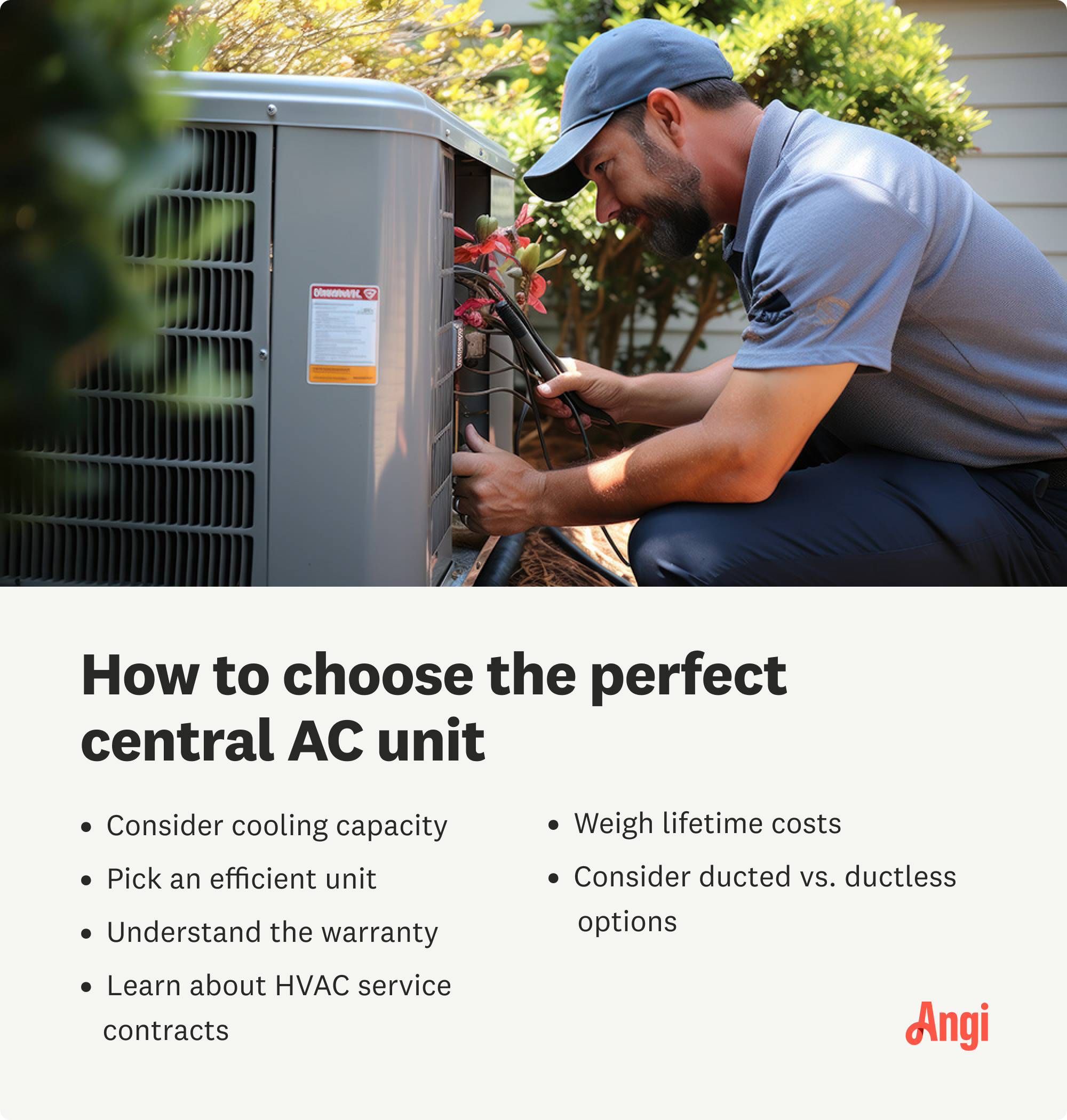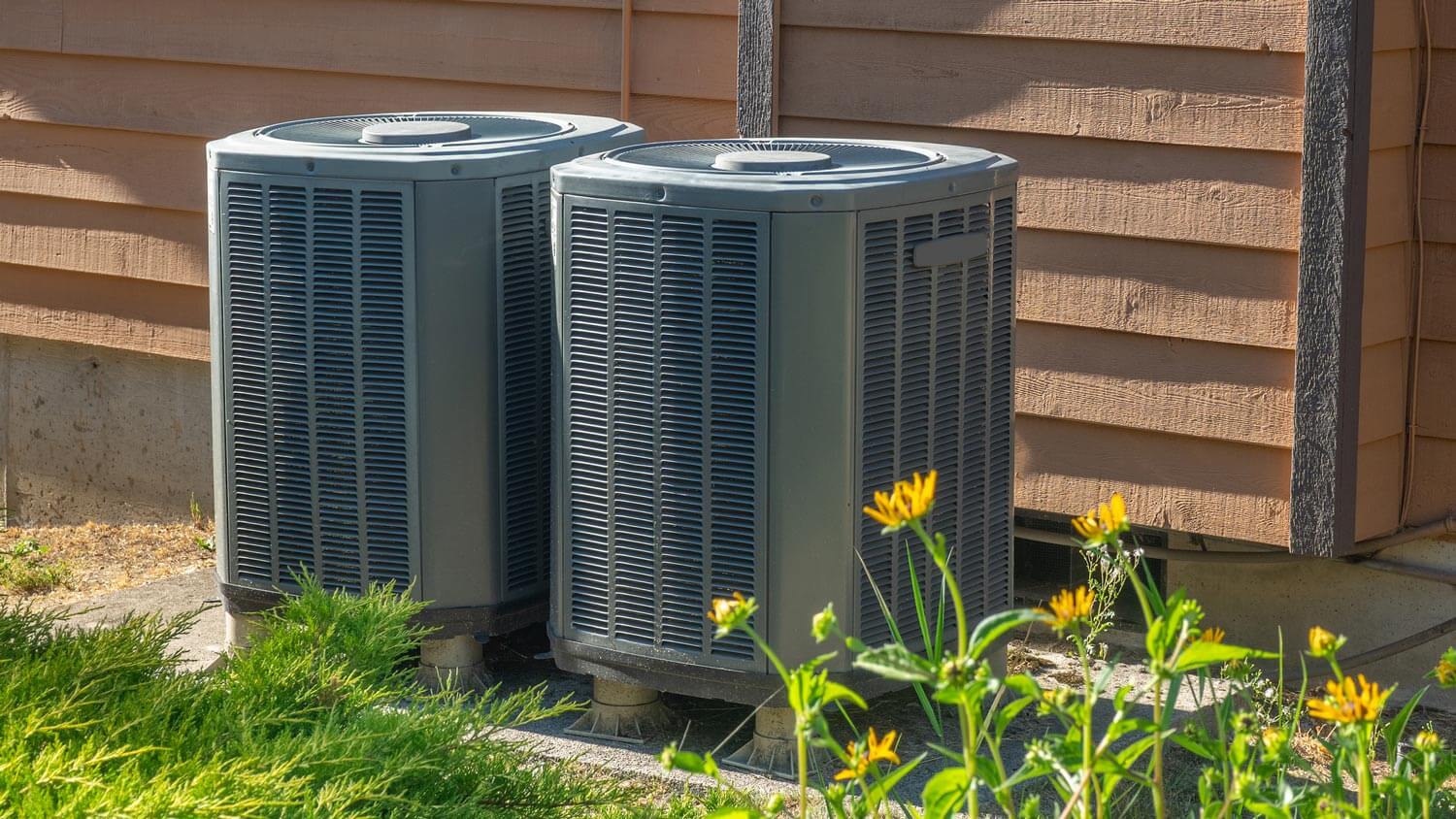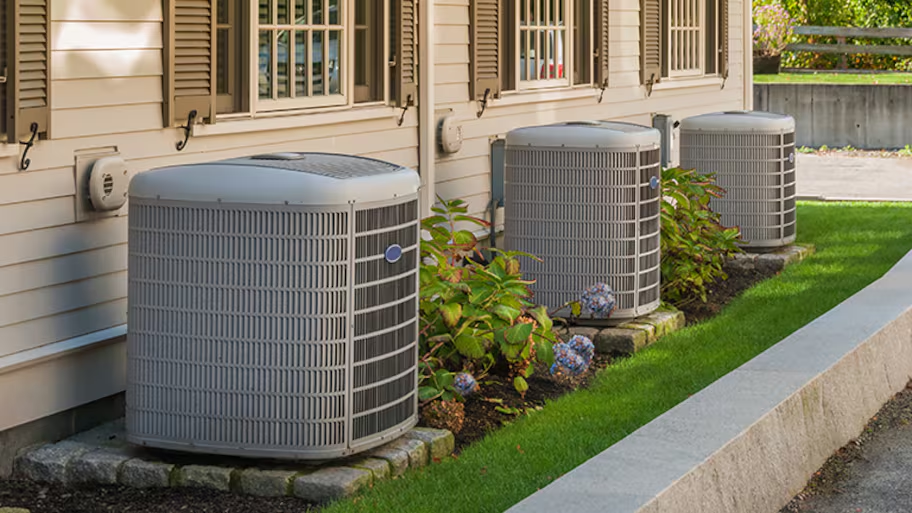
What you’ll pay in Columbus, OH, for furnace repairs depends on many factors. Here’s a breakdown of what can go wrong and the cost to fix those issues.
The right AC unit will make summer the most wonderful time of the year


To avoid wasted energy and costs, pick a central air conditioning unit with the right cooling capacity based on the size of your house.
An AC unit with a higher SEER rating will be more energy efficient, but the up-front cost will be higher.
Warranties vary greatly between manufacturers, so double-check the details before making any purchases.
If you don’t have ductwork already installed, consider a ductless AC to save on installation costs.
Signing up with a service contract will give coverage for regular inspections and tune-ups.
If it's time to replace your central air conditioner, you know you've got to get it done before the summer heat arrives. But buying and installing a new AC unit costs between $3,800 and $7,900, so choosing the right model for your particular needs is critical. The unit you choose needs to be efficient, cost-effective, durable, and have enough capacity to keep your property comfortably cool.
Before you swipe your card on a new central AC unit, consider these important cost factors.

Having an AC system that is too small is certainly a problem, but so is one that’s too big. While you may think that having more cooling capacity than you need is better than having too little, this isn't strictly true.
Sure, it makes sense to have a small overage so that the unit can cope with the extra strain of maintaining comfortable temperatures during a heatwave. However, having an excessively oversized unit costs you more upfront and in operation costs, and nobody wants to pay more than is needed.
The overage in capacity versus need results in more on/off cycling, making your unit consume more energy than a correctly sized unit that cycles on and off less frequently. This process is bad for the planet and your bank balance.
Many people make the mistake of choosing their new air conditioner just based on the square footage of their home, but you also need to account for airflow into and out of rooms, which impacts efficiency. Then you'll need to factor in how efficiently your property is insulated, your local climate, and how your family uses your home.
With so many factors to account for, it's a smart idea to get a quote from a local HVAC pro who can advise you on the perfect air conditioner unit for your home.
Sure, you'll pay more upfront for a super-efficient air conditioning unit, but you'll save substantially long term in energy costs. Plus, the more efficient the unit, the more you reduce your home's carbon footprint.
All models manufactured after 2006 have to have a Seasonal Energy Efficiency Rating (SEER) of at least 13 (this rises to 14 in the south and southwest), while the most efficient ones have a SEER of up to 21. Some pre-2006 models have a SEER as low as six to 10. Newer models with a SEER of the national required minimum of 13 are 30% more efficient than models with a SEER of 10. To have Energy Star qualification, a central air unit needs a minimum SEER of 14.5.
The better the SEER rating, the more you'll save in energy costs, but the more you'll pay upfront.
Look for energy-efficient features like multi-stage cooling, a fan-only option, a variable-speed blower, and a filter maintenance indicator. All of these features add to the efficiency of the unit.

Be clear on the length and terms of your warranty. Warranties vary between manufacturers significantly, and they're often anything but straightforward. For example, the condenser or all the refrigeration components may be covered under one set of terms for a specific period, but the mechanical parts like the air conditioning unit may be covered by different terms and for another period.
Also, note whether labor is or is not included in the terms of the warranty or whether only partial labor for some part replacements is covered. Some components may also be covered by a limited lifetime warranty. It's also important to understand what is considered authorized labor, as using unauthorized labor may void part or all of the warranty. For example, some warranties will only cover labor from specific HVAC repair and maintenance companies. Additionally, all work must usually be carried out by a suitably qualified technician.
Basically, don't just be swayed by what sounds like a fabulous deal. Do your due diligence and make sure you pay close attention to all the terms of the warranty before you commit to the purchase.
HVAC service contracts provide you with regular inspections, tune-ups, and seasonal maintenance. Some, but not all, also include parts, labor, and emergency callouts.
Given that you should have your HVAC system inspected and tuned up twice a year anyway, investing in an HVAC service contract makes good sense. These inspections can spot and fix minor issues before they become big expensive ones. Plus, regular maintenance helps keep your air conditioner functioning at peak efficiency, optimizing its lifespan and operating costs.
When buying a new air conditioner, you need to think beyond the upfront purchase and installation costs. Remember to look at how much the unit will take to run yearly. Plus, factor in the cost of HVAC maintenance or a service contract.
As a general rule, you'll minimize lifetime costs by purchasing a high-quality, energy-efficient model and keeping it well-maintained.
If you’re looking to install central AC, you can choose between ductless and ducted options. If you don’t already have ductwork, ductless AC is a viable choice, as you won’t have to worry about extra installation costs for ductwork and all the additional labor and construction required.
If you already have ducts in your home and money is a concern, then going with a ducted system is probably a better choice, as ductless systems actually have a higher initial installation cost associated with them.
From average costs to expert advice, get all the answers you need to get your job done.

What you’ll pay in Columbus, OH, for furnace repairs depends on many factors. Here’s a breakdown of what can go wrong and the cost to fix those issues.

HVAC replacement costs depend on a lot of factors, like unit type, size, and labor. See what you can expect to pay for HVAC replacement here.

If you’re having problems with your air conditioner’s condenser, it may be time for an upgrade. Learn about the cost to replace an AC condenser in this guide.

Condensation on air vents suggests something is wrong with your HVAC system. Learn how to stop condensation on air vents through preventive measures.

Knowing when to replace your boiler will help you avoid last-minute emergencies in the middle of winter. Here are seven signs that you may need a brand-new unit.

Thinking about installing a heat pump in your home? Learn about the different types of heat pumps and the options you can choose from in this guide.